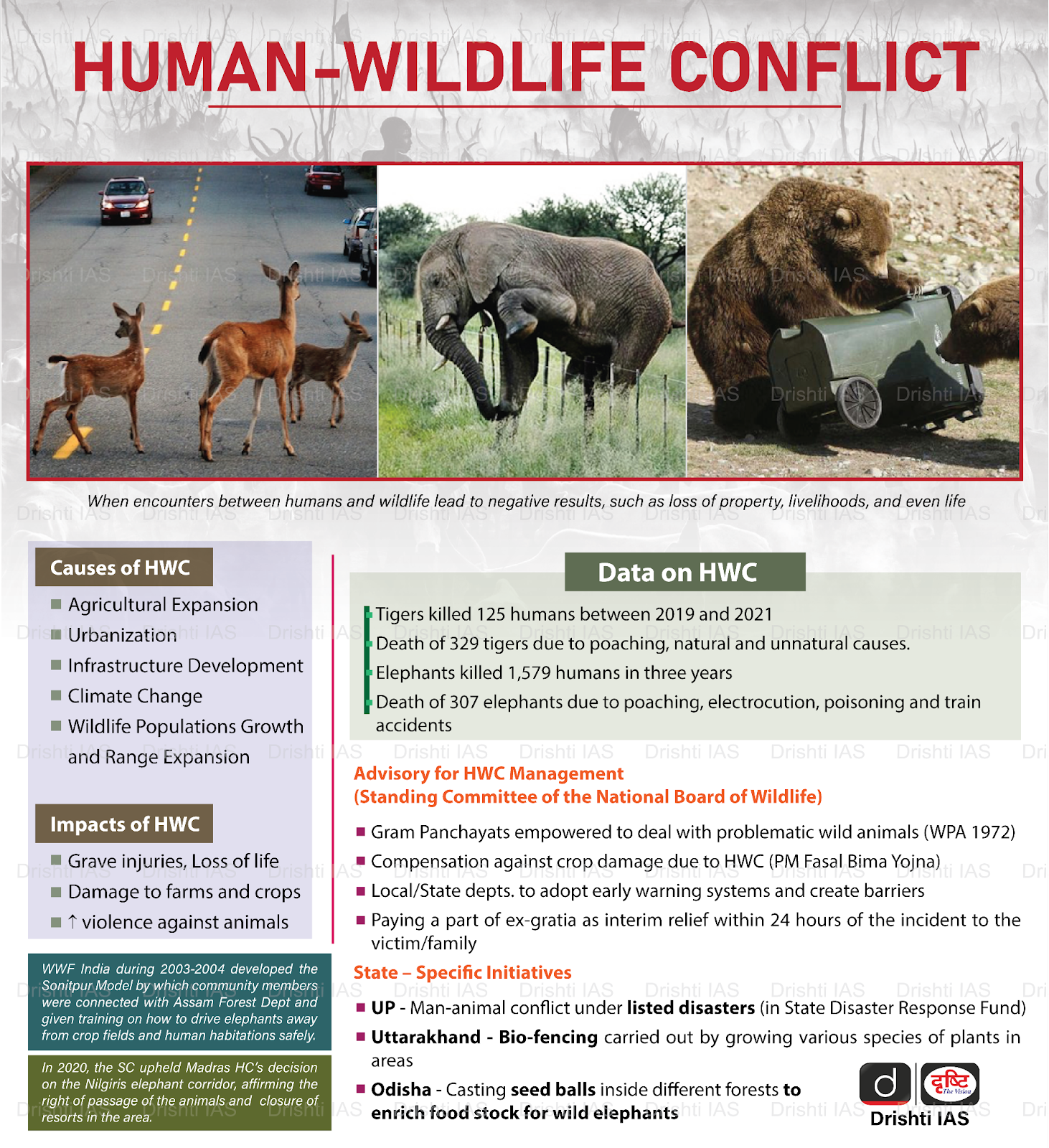Bihar Switch to Hindi
Waqf Board Claims Over a Village in Bihar
Why in News?
Recently, The Bihar Waqf Board has sent notice to villagers in Govindpur village, demanding they vacate the land within 30 days.
Key Points
- After receiving these notices, all landowners filed a petition in the Patna High Court.
- The High Court stated that the land has been in the names of the petitioners' descendants since 1910.
- The Waqf (Amendment) Bill, 2024 was also introduced in the Parliament in August 2024.
Waqf Board
- A Waqf board is a legal entity capable of acquiring, holding and transferring property. It can sue and be sued in court.
- It administers Waqf properties, recovers lost properties and sanctions the transfer of immovable Waqf properties through sale, gift, mortgage, exchange, or lease, with at least two-thirds of the board members voting in favour of the transaction.
- The Central Waqf Council (CWC), established in 1964, oversees and advises state level Waqf Boards across India.
- It is said to be the third-largest landholder in India after the Railways and the Defence department.
Key Amendments in Waqf Act (Amendment Bill), 2024
- Transparency: The Bill outlines around 40 amendments to the current Waqf Act, including that Waqf Boards will be required to undergo mandatory verification for all property claims, ensuring transparency.
- Gender Diversity: Sections 9 and 14 of the Waqf Act, 1995 will be amended to modify the composition and functioning of the Waqf Board, including the addition of women representatives.
- Revised Verification Procedures: New verification procedures will be introduced for Waqf properties to address disputes and prevent misuse, with district magistrates potentially overseeing these properties.
- Limited Power: The amendments respond to concerns about the Waqf Boards’ unchecked powers, which have led to extensive land being claimed as Waqf, causing disputes and misuse claims.
- For example, in September 2022, the Tamil Nadu Waqf Board claimed the entire Thiruchendurai village, which is predominantly Hindu.
Uttar Pradesh Switch to Hindi
Scholarship to Students of Sanskrit Schools
Why in News?
Recently, The Uttar Pradesh government has decided to give scholarships to all students studying in over 500 Sanskrit schools in the state.
Key Points
- The state also removed the condition that their family income should be less than Rs 50,000 annually.
- Under this new scheme, a scholarship of Rs 50 per month will be given to the children of class 6 and 7, and Rs 75 to the children of class 8.
- The students of classes 9 and 10 will get Rs 100 per month and those studying in classes 11 and 12 will be given Rs 200.
Madhya Pradesh Switch to Hindi
Another Cheetah Dies in Kuno National Park
Why in News?
According to the forest officials from Madhya Pradesh, one more cheetah has died in the Kuno National Park. The Preliminary cause of death seems to be due to drowning.
Key Points
- This marks the death of the eighth cheetah out of the 20 relocated from South Africa and Namibia to India.
- Most of the cheetahs are currently in special enclosures and are expected to be released into the wild starting in October, once the monsoon season ends.
- All the animals are reportedly under surveillance via radio-collars and their movement is getting tracked.
Kuno National Park
- Kuno National Park which is located in Madhya Pradesh’s Sheopur district is home to several cheetahs translocated from Namibia and South Africa.
- Project Cheetah in India formally commenced on September 17, 2022, to restore the population of cheetahs, which were declared extinct in the country in 1952.
Radio Collars
- Radio collars are used to track and monitor animals in the wild.
- They consist of a collar with a small radio transmitter.
- Collars provide data on animal behavior, migration, and population dynamics.
- They can be combined with GPS or accelerometers for additional information.
- Collars are designed to be lightweight and comfortable for animals.
Haryana Switch to Hindi
Tiger ST-2303 in Jhabua
Why in News?
Recently, Tiger ST-2303 has wandered from Sariska Tiger Reserve to the dense forests of Jhabua in Rewari, Haryana.
Key Points
- Jhabua forest, rich in prey like nilgai and wild boar, provides the tiger with an abundant food source and dense cover, making it challenging for forest officials to capture or relocate him.
- The tiger's presence near villages has raised safety concerns and fear of potential human-wildlife conflict.
- Forest officials are coordinating with counterparts in Rajasthan to safely return the tiger to Sariska.
- The Sariska Tiger Foundation has urged the Union Minister of Environment to ensure the tiger's return to its original habitat, amidst concerns of possible relocation to another reserve.
- This incident highlights the importance of protecting wildlife corridors between Sariska and the Haryana Aravalis for future tiger migrations.
Sariska Tiger Reserve
- Sariska Tiger Reserve is located in Aravali hills and forms a part of the Alwar District of Rajasthan.
- It was declared as a wildlife sanctuary in 1955 and was declared as a tiger reserve later in 1978, making it a part of India's Project Tiger.
- It encompasses ruined temples, forts, pavilions and a palace.
- Kankarwadi Fort is located in the centre of the reserve.
- It is said that Mughal emperor Aurangzeb had imprisoned his brother Dara Shikoh at this fort in the struggle for succession to the throne.
Haryana Switch to Hindi
Haryana Plan for Reduction in Farm Fires
Why in News?
Recently, The government of Haryana has developed a framework to make use of all the leftover stubble after the harvesting of paddy crops.
- This initiative aims to reduce the occurrence of farm fires, which contribute to the hazardous air pollution in northern India during the onset of winter every year.
Key Points
- The agriculture department has estimated that 38.8 lakh acres of farmland across Haryana will be utilized for the cultivation of paddy in 2024. These crops are projected to generate 81 lakh metric tonnes (LMT) of residues.
- The residue, or straw, that remains after farmers harvest paddy is what they end up burning to quickly clear the land for another round of sowing.
- The state government is going to introduce Crop Residue Management scheme which involves:
- In-situ stubble management involves chopping and mixing stubble into the soil as compost. To support this, the government will provide 90,000 machines, including slashers, and offer farmers Rs 1,000 per acre as an operational charge.
- Ex-situ management incentivizes the use of stubble in industries, such as biomass for biofuels or raw material for packaging and cardboard units. This creates an economic alternative to stubble burning, as industries purchase crop residues from farmers.
- The government's plan involves distributing 1,405 baler machines to districts, which will then be provided to farmers.
- This is aimed at making the collection and storage of crop residues more convenient. Additionally, officials are working on establishing partnerships with industries to purchase these crop residues.
Stubble Burning
- Stubble (parali) burning is a method of removing paddy crop residues from the field to sow wheat from the last week of September to November, coinciding with the withdrawal of southwest monsoon.
- Stubble burning is a process of setting on fire the straw stubble, left after the harvesting of grains, like paddy, wheat, etc. It is usually required in areas that use the combined harvesting method which leaves crop residue behind.
- It is a common practice in October and November across North West India, but primarily in Punjab, Haryana, and Uttar Pradesh.
Jharkhand Switch to Hindi
Panchayats in Jharkhand Declared TB Free
Why in News?
According to the sources, a total of 38 panchayats across Jharkhand have been declared Tuberculosis (TB)-free under the National Tuberculosis Elimination Programme (NTEP).
Key Points
- The information was declared by the State Tuberculosis Cell Jharkhand and the Resource Group for Education and Advocacy for Community Health (REACH).
- The NTEP in Jharkhand aims to eradicate tuberculosis (TB) by the year 2025 through diverse initiatives, including the Pradhan Mantri TB Mukt Bharat Abhiyan and the adult BCG vaccination program.
Tuberculosis
- About:
- Tuberculosis (TB) is an infectious disease caused by Mycobacterium tuberculosis.
- It commonly affects the lungs, but can also affect other parts of the body.
- It is a treatable and curable disease.
- Transmission:
- TB is spread from person to person through the air. When people with lung TB cough, sneeze or spit, they propel the TB germs into the air.
- Symptoms:
- Common symptoms of active lung TB are cough with sputum and blood at times, chest pains, weakness, weight loss, fever and night sweats.
- Vaccine:
- Bacille Calmette-Guérin (BCG) is a vaccine for TB disease.
Pradhan Mantri TB Mukt Bharat Abhiyan
- About:
- It's an initiative of the Ministry of Health and Family Welfare (MOHFW) to accelerate the country’s progress towards TB elimination by 2025.
- Objectives:
- Provide additional patient support to improve treatment outcomes of TB patients
- Augment community involvement in meeting India’s commitment to end TB by 2025.
- Leverage Corporate Social Responsibility (CSR) activities.










%20MPPCS%202025%20Desktop%20E.jpg)
%20MPPCS%202025%20Mobile%20E%20(1).jpg)





















 PCS Parikshan
PCS Parikshan



